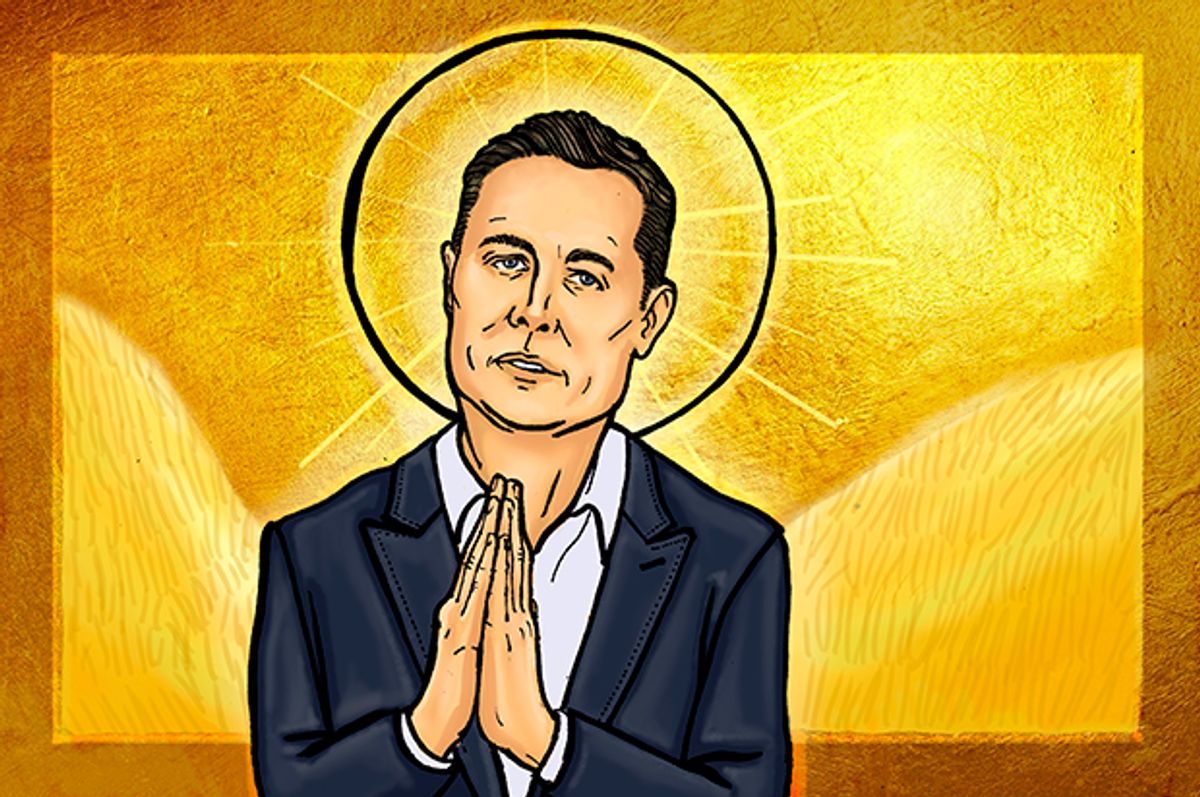In 1972, RAND Corporation engineer Robert M. Salter published a paper describing a mode of transportation in which vehicles float on an electromagnetic field as they travel at speeds comparable to aircraft through air-evacuated tunnels. Salter envisioned a national subway system that would whisk passengers from San Diego to Seattle, from Los Angeles to New York City, and on routes branching out from Minnesota to New Orleans.
If this sounds familiar, it is.
Salter’s Very High Speed Transit concept bears a firm resemblance to the Hyperloop that billionaire Elon Musk floated five years ago, boldly proclaiming that vacuum-tube transport could become humanity’s “fifth mode of transport” after planes, trains, automobiles and ships.
As with much of what the co-founder of Tesla and SpaceX has proposed over the years, investors have taken notice. At least three multimillion-dollar startups have emerged -- Hyperloop One, Hyperloop Transportation Technologies and TransPod -- to try to make Musk’s tube-based transportation blueprint a reality.
So if the pneumatic-tube transport idea is old and technologically viable (if also an immense engineering challenge), then why is there so much renewed interest?
The answer may simply be because Musk proposed it.
Whether it’s his plan to seed the world with electric cars, solar panels and battery storage systems, or send settlers to Mars, the billionaire futurist’s steady stream of ideas has helped him garner a following that could easily be described as religious.
He’s not the only adored CEO tooling around the Bay Area, but Musk has been particularly successful in fostering a cult-like following similar to the one bestowed upon the late co-founder of Apple, Steve Jobs.
“We see this all of the time in religions,” Benjamin Zeller, associate professor of religion at Lake Forest College, told Salon. “[Musk] has an ability to become associated with exciting ideas in which he becomes the spokesman for those ideas. People see these leaders as the personification of their ambitions, goals, hopes and desires.”
Zeller, who wrote about the cult of Apple shortly after Jobs’ death in 2011, says that the tech industry is particularly prone to creating these cults of personality because technology is perceived to offer solutions to many of the world’s problems. One could draw biblical comparisons: that renewable energy will rescue us from the great flood of global warming or that Mars could someday offer humanity an exodus from a dying planet.
“Also, technology can sometimes seem like magic,” Zeller said. “It’s something beyond our mortal understanding.”
And Silicon Valley is not short on these Silicon prophets who profess to be disrupting convention and making the world a better place for everyone.
There’s Rob Rhinehart, founder of the food-substitute beverage Soylent, who’s selling the idea of a more efficient way to deliver nutrients to the body. Uber founder Travis Kalanick wants to take over the global taxi and livery industry with robotic cars. Zappos CEO Tony Hsieh has built his reputation around radically reinventing the workplace and urban living. There are fallen angels, too, like Theranos founder Elizabeth Holmes, once the darling of hedge fund investors for her (since disastrously failed) attempt to diagnose a range of diseases from one drop of blood.
Charismatic leaders, whether they’re Silicon Valley billionaires, presidents, or the heads of actual cults, carefully craft their charisma, says Zeller. We know from court documents, for example, that Musk himself has gotten upset when the “difficult to control” media is perceived as downplaying his role at Tesla.
Benjamin Hermalin, vice provost for the faculty at the University of California, Berkeley, who has studied charismatic corporate leadership, says the benefit of having a charismatic visionary at the head of a company is that it inspires its employees be more committed and work harder for the company. But on the downside, he says, “household-name” CEOs can sometimes be more interested in boosting their own personal brand over that of their companies.
“Because everyone has flaws or makes mistakes, there is liability if the CEO falters,” Hermalin said in an email to Salon. “Any scandal or misstep will rebound more on such a company (its sales, etc.) than for one led by a bland CEO who isn't a household name.”
Hermalin says he suspects the charismatic CEO is more valuable to startups than to established companies. Tesla benefits from having an outspoken showman like Musk at the helm, because the company needs to maintain the interest of investors, employees and the public as it tries to become an established and profitable company.
“A charismatic leader can help with that ‘gospel,’” Hermalin said.



Shares